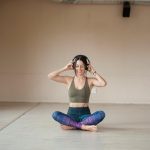In the modern world, technology has become an indispensable part of daily life, even extending its reach into the realm of sleep improvement. For seniors, this technological advancement offers a transformative way to monitor and enhance sleep quality. By tracking sleep patterns and providing actionable data, wearable devices and other technologies can significantly help in maintaining good health. This article explores how seniors can leverage technology to achieve a better night‘s sleep and improve their overall quality of life.
The Importance of Quality Sleep for Seniors
Quality sleep is not just a luxury; it is vital for the health and well-being of older adults. As people age, they face unique challenges that can interfere with their sleep, such as chronic pain, medications, and changes in circadian rhythms. Sleep disruptions can lead to a decline in health, affecting heart rate, cognitive functions, and even emotional stability. Therefore, understanding and addressing sleep issues is crucial for senior living.
Also to read : How Can Seniors Over 75 Engage in Safe Strength Training Exercises?
Traditionally, sleep problems in seniors were often overlooked, but wearable technology has changed the landscape significantly. These devices can provide continuous sleep monitoring, helping to identify patterns and underlying issues. With real-time data collection, seniors and their caregivers can make informed decisions to improve sleep quality.
How Wearable Devices Aid Sleep Monitoring
Wearable devices like fitness trackers and sleep trackers are revolutionizing the way seniors monitor their sleep. These devices are designed to be non-intrusive and can be worn comfortably throughout the night. They provide a wealth of information, including heart rate, sleep duration, and sleep patterns.
Also read : How Can Seniors Utilize Online Therapy Services for Mental Health Support?
Sleep trackers work by using sensors to detect movement and physiological signals while you sleep. This data is then analyzed to provide insights into sleep stages, such as light sleep, deep sleep, and REM sleep. By identifying these stages, the devices can offer a comprehensive view of your sleep cycle, allowing you to understand what might be affecting your sleep quality.
Moreover, many wearable devices come with companion apps that allow for detailed performance tracking over time. This long-term data collection is invaluable for identifying trends and making necessary adjustments to improve sleep. For seniors living in assisted living facilities, these insights can be shared with caregivers to ensure a holistic approach to senior care.
Utilizing Sleep Tracking for Better Sleep Quality
Sleep tracking goes beyond merely collecting data; it provides actionable insights that can significantly improve sleep. For instance, if a sleep tracker identifies frequent awakenings during the night, it might suggest lifestyle changes or adjustments in the sleep environment to address the issue. This could include altering bedtimes, reducing caffeine intake, or modifying the sleep environment to make it more conducive to quality sleep.
Additionally, some sleep tracking devices come with features designed to enhance sleep. These may include guided meditation sessions, soothing sounds, and even smart alarms that wake you during the lightest sleep phase, making it easier to start your day feeling refreshed. The ability to customize these features ensures that each senior can tailor their sleep experience to their specific needs.
For older adults, consistent sleep tracking can help in more ways than one. It can aid in the early detection of sleep disorders, such as sleep apnea, which might otherwise go unnoticed. Timely interventions can make a significant difference, improving both sleep and overall health outcomes.
The Role of Caregivers in Monitoring Sleep
Caregivers play a crucial role in ensuring the well-being of seniors, and sleep is a critical aspect of that care. With the advent of smart technology, caregivers can now track and monitor sleep patterns more effectively. Many modern sleep monitoring devices offer real-time data sharing, allowing caregivers to keep an eye on sleep quality even from a distance.
This constant monitoring is particularly beneficial in assisted living setups, where multiple residents may need attention. Wearable devices can alert caregivers to potential issues, such as prolonged periods of restlessness, enabling timely interventions. This proactive approach not only improves sleep but also enhances the overall quality of life for seniors.
Caregivers can also use the data obtained from sleep trackers to make informed decisions about the seniors’ daily routines. For instance, if a pattern of poor sleep is detected, adjustments can be made to activities, meal timings, and medication schedules to promote better sleep. This holistic approach ensures that all aspects of a senior’s life are geared toward enhancing their sleep quality.
Integrating Technology into Senior Living for Better Sleep
Incorporating technology into senior living arrangements can create an environment conducive to quality sleep. From wearable devices to smart home systems, there are numerous tools available to help seniors achieve better sleep. Smart home systems, for example, can automate lighting and climate control to create an ideal sleep environment. These systems can be programmed to dim lights and adjust temperatures at specific times, helping to regulate circadian rhythms.
Wearable technology and fitness trackers can also be integrated into daily routines. Regular sleep monitoring can provide insights into how daily activities impact sleep, enabling seniors to make informed choices. For instance, they might discover that a short walk in the evening improves sleep quality or that certain foods disrupt their sleep.
Moreover, the use of technology in senior care extends beyond sleep. Many wearable devices offer additional features like fitness tracking and emergency alerts, providing a comprehensive solution for seniors. This integration ensures that all aspects of a senior’s health are monitored, contributing to overall well-being.
As we have explored, technology offers a plethora of tools that can significantly improve sleep quality for seniors. From wearable devices that provide continuous sleep monitoring to smart home systems that create an ideal sleep environment, the possibilities are endless. By leveraging these advancements, seniors can not only track and understand their sleep patterns but also make informed decisions to enhance their overall quality of life.
For caregivers, these technologies offer invaluable insights, enabling them to provide better care for the seniors. The integration of wearable technology into daily routines and senior living setups ensures a comprehensive approach to well-being. Ultimately, embracing technology for better sleep is a crucial step toward achieving a healthier, more fulfilling life for seniors.
In summary, seniors who adopt wearable devices and other sleep tracking technologies can experience transformative benefits. These tools provide critical data that can be used to make informed decisions, leading to improved sleep quality and overall health. Therefore, embracing technology is not just an option; it is a necessity for those seeking to enhance their quality of life in their golden years.











